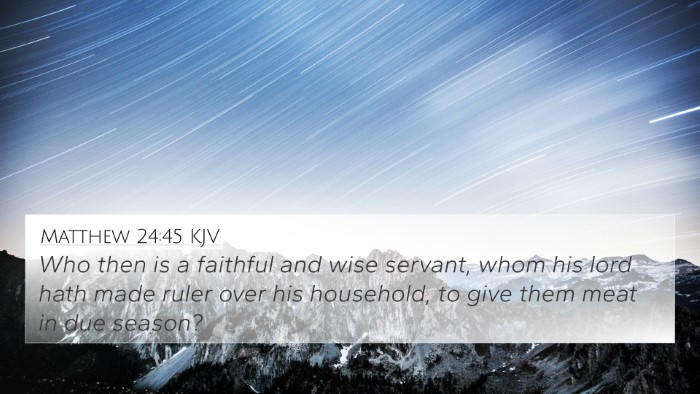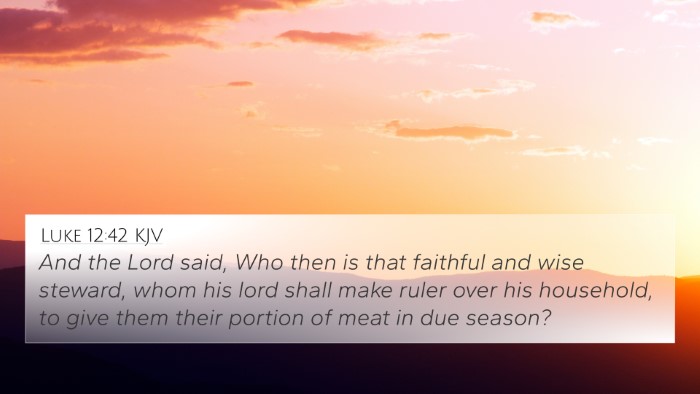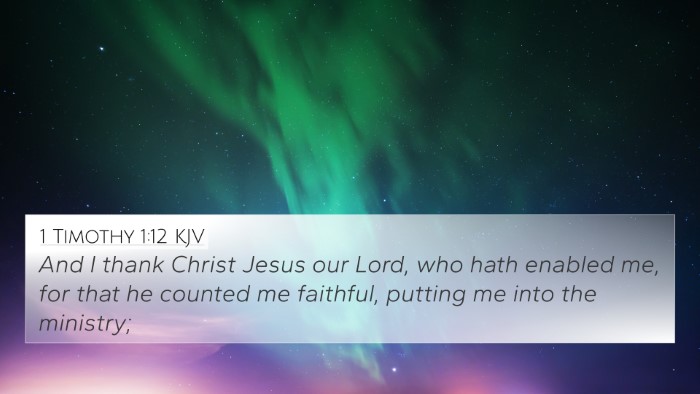Understanding Jeremiah 23:28
Jeremiah 23:28 states:
"The prophet that hath a dream, let him tell a dream; and he that hath my word, let him speak my word faithfully. What is the chaff to the wheat? saith the Lord."
Summary of Meaning
This verse highlights the dichotomy between those who claim divine inspiration through dreams and those who faithfully communicate God’s words. The passage emphasizes the importance of authenticity and truth in prophetic messages.
Commentary Insights
-
Matthew Henry:
Henry draws attention to the distinction between dreams of the false prophets and the word of God. He suggests that dreams may often be trivial like chaff, whereas God’s word is substantive like wheat, denoting durability and nourishment for the soul.
-
Albert Barnes:
Barnes comments on the nature of prophetic communication. He asserts that dreams, while often seen as significant in various cultures, hold no intrinsic value compared to the revelation from God. The emphasis is on the fidelity of delivering God’s truth rather than subjective visions.
-
Adam Clarke:
Clarke emphasizes that the true measure of spirituality and divine communication is not in dreams but in the consistency and correctness of the prophetic word. He argues that the proper understanding of divine messages comes through careful study and alignment with God’s teachings.
Bible Verse Cross-References
- Deuteronomy 13:1-3: A warning against false prophets and the necessity of discerning true prophecy.
- Isaiah 8:20: The importance of adhering to the established Word of God as the standard for truth.
- Ezekiel 13:2-3: Condemnation of false prophets who speak from their own hearts rather than God’s words.
- 1 Thessalonians 5:20-21: Encouragement to test all things and hold fast to what is good, aligning with the theme of discernment in prophecy.
- John 17:17: Jesus’ prayer for sanctification through the truth, emphasizing that God’s word is truth.
- Jeremiah 14:14: Addresses false visions and the lies of prophets who speak without divine inspiration.
- Romans 10:17: Faith comes from hearing, and hearing through the word of Christ, again emphasizing the importance of God’s word over dreams.
Thematic Bible Verse Connections
Jeremiah 23:28 serves as a cornerstone in understanding the nature of prophecy and divine communication. It connects to various themes and subjects throughout Scripture:
- Authenticity of Prophecy: Prophets are called to deliver God’s messages honestly and faithfully.
- Testing Prophetic Claims: Believers are urged to critically assess the validity of any prophetic claim against Scripture.
- Value of God’s Word: The emphasis on the wheat vs. chaff analogy underlines the eternal value of God’s truth in contrast to fleeting human experiences.
Cross-Referencing Biblical Texts
In studying Jeremiah 23:28, employing cross-referencing techniques allows for deeper insights into related scripts. Here are some methods to consider:
- Use of a Bible Concordance: Identifying keywords such as "prophet," "dream," and "word" and exploring their contexts across different scriptural passages.
- Bible Reference Resources: Utilizing Bible dictionaries or study guides to expand understanding of terms and phrases used in the verse.
- Cross-Reference Bible Study: Engaging in thematic study sessions that focus on the role of prophecy in Scripture, contrasting true and false prophets.
Conclusion
Jeremiah 23:28 serves as a pivotal verse that confronts the issue of prophetic authenticity, urging believers to prioritize the faithful delivery of God’s word. This verse not only emphasizes the contrast between worthy messages and mere dreams but also encourages readers to seek robust understanding through various means of inter-Biblical dialogue, cross-referencing and thematic studies.









